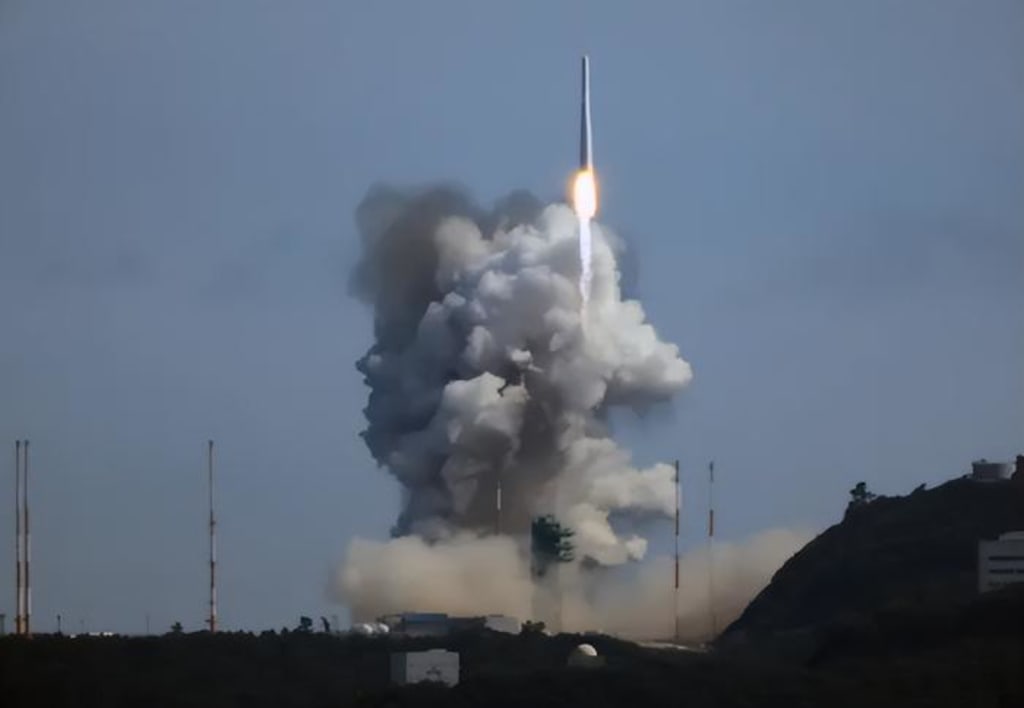Taking 12 years to launch, South Korean rocket succeeds; why is the so-called developed world struggling to launch?
Korean rocket launch success

Who would have thought that South Korea would have to go to such lengths to build and develop launch vehicles? Compared to China, South Korea is lagging in space technology. China's Shenzhou 13 and Shenzhou 14 were launched one after another, and China has gradually matured beyond most countries in the construction of space stations.
People have the impression that Korea is a developed country, unlike developed countries. When the United Nations Conference on Trade and Development held its 68th session of the Trade and Development Board in Geneva, it adopted a case to change Korea's status and officially recognised Korea as a developed country.
Since then, Korea has officially entered the ranks of developed countries. In the general mindset, developed countries are naturally more developed in all aspects. In the field of space, South Korea cannot be too far behind, but why did it take 12 years for South Korea to build a launch vehicle?
Beginning in the 1980s, South Korea began to develop its space industry and was determined to make a name for itself in the field and become a space powerhouse. The reality, however, was that its technology fell short of that of other countries and, because of its technological backwardness, the first satellites launched were in partnership with Russia.
Since then, South Korea has embarked on more intensive cooperation with Russia. Russia helped South Korea to build the first stage rocket, while South Korea produced the second stage rocket itself. Despite Russia's involvement, it still did not change the outcome of the failed launch.
In fact, South Korea itself realised that its core technology had been restricted by Russia. To get rid of its dependence on core technology, South Korea decided to build its rocket This led to the launch of a rocket project called World. Since last year, the World rocket launch experiment has been underway, but it has encountered many difficulties. The world's first launch failed when Chinese scientists said that South Korea's space capabilities were as good as those of the Chinese-made Long March 1.
I have to say that South Korea's space technology is too backwards. Being a developed country seems to be a bit of a misnomer. In fact, the development of the Korean space sector is limited by many inherent conditions, such as the lack of a suitable launchTheea. When we cooperated with Russia before, we still borrowed the Russian launch site for the launch. When we develop independently, we need to have our launch site. It is well known that China has many rocket launch centres. After all, China is vast and rich in resources. It is easy to find a suitable launch centre, but South Korea is different. The launch centre chosen by South Korea, which has a small land area, is the island of Rollao, which is only 25 square kilometres in size.
The small size of the launch centre meant that the angle and direction of the launch were even more restricted. If a rocket is launched from Rollao, it can only be launched to the south.
In addition to a suitable launch centre, a monitoring centre is also needed. After the rocket is launched, it needs to be monitored in real-time to ensure that the rocket is functioning properly. It is important to know that China has monitoring centres and technology on land and the sea to monitor the rocket's flight status in real-time from multiple angles, while South Korea does not. South Korea has only one ancient monitoring centre, the Jeju Island Monitoring Centre. Once a rocket is out of monitorable range, it means that the monitoring function is lost, which certainly increases the possibility of a failed launch.
All in all, developing space technology and becoming a space powerhouse is difficult, especially when it comes to mastering advanced core technologies. This requires not only the hard work of space builders but also the support of the public and the state. In this regard, China has undoubtedly set an example for the world to follow. It is the direction we are constantly striving for and we believe that China's space industry will get better and better in the future.
About the Creator
Sukkning
Science will give mankind's greatest gift is? Is to make the power of humans believe that truth。
Enjoyed the story? Support the Creator.
Subscribe for free to receive all their stories in your feed. You could also pledge your support or give them a one-off tip, letting them know you appreciate their work.






Comments
There are no comments for this story
Be the first to respond and start the conversation.